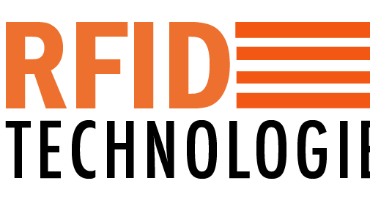Here are some ways to utilize UHF RFID technology in these domains:
Medical Equipment Tracking: Attach UHF RFID tags to medical equipment such as infusion pumps, ventilators, or surgical instruments. The RFID tags enable real-time tracking and monitoring of equipment location, status, and maintenance schedules. This helps healthcare providers locate equipment efficiently, reduce loss or theft, streamline maintenance processes, and optimize asset utilization using UHF RFID tags and label - both hard and soft UHF RFID Label Tags can be attached to items or packaging, allowing for real-time tracking of inventory. This enables businesses to automate stocktaking, reduce manual errors, streamline replenishment processes, and improve overall inventory accuracy. Real-time tracking of inventory doing automate stocktaking using UHF RFID Readers - both Fixed-mounted UHF RFID Readers as well as Portable Mobile UHF RFID Readers
Medication Inventory Management: Implement UHF RFID tags labels - both hard and soft UHF RFID Label Tags can be attached to items or packaging, allowing for real-time tracking of inventory on medication packaging or containers to track medication inventory accurately. RFID readers can quickly scan and update inventory levels, reducing the need for manual stocktaking and preventing stockouts. This enhances medication management, reduces waste, and ensures the availability of critical medications when needed.
Patient Safety and Asset Utilization: UHF RFID technology can enhance patient safety by ensuring the right equipment is available for each patient. By tagging patients and equipment, healthcare providers can automatically match equipment to the right patient, track usage, and prevent errors or mix-ups. This improves patient safety, reduces the risk of infections, and optimizes asset utilization.
Temperature and Environmental Monitoring: Integrate temperature and environmental sensors with UHF RFID tags to monitor the conditions of sensitive pharmaceutical products. This helps ensure that medications and vaccines are stored within the appropriate temperature range, preventing spoilage and maintaining their efficacy. Real-time alerts can be triggered if the temperature deviates from the desired range, allowing immediate corrective actions.
Counterfeit Drug Prevention: UHF RFID tags can be applied to pharmaceutical packaging or at the unit level to enable traceability and combat counterfeit drugs. Each tag contains a unique identifier that can be scanned throughout the supply chain to verify the authenticity and origin of the product. This technology helps prevent the circulation of counterfeit medications, ensures patient safety, and maintains the integrity of the pharmaceutical supply chain.
Recall Management: UHF RFID technology facilitates efficient recall management in the event of a product recall. By leveraging RFID tags, healthcare providers and pharmaceutical companies can quickly identify and locate affected products, reducing the time and effort required for manual recalls. This improves patient safety and minimizes the impact of recalls on the supply chain.
Integration with Electronic Health Records (EHR): Integrate UHF RFID technology with electronic health records systems to enhance data accuracy and patient care. RFID tags can be used to automatically update patient information, medication administration records, and treatment details. This reduces manual data entry errors, improves workflow efficiency, and provides a comprehensive view of patient care.
It is important to consider data privacy and security when implementing UHF RFID technology in healthcare and pharmaceutical settings. Adhere to industry regulations and best practices to ensure the protection of patient and sensitive information.
UHF RFID technology is continuously evolving,and there may be new advancements and applications and to stay updated with the latest developments and consult with experts in the field for the most current information.

